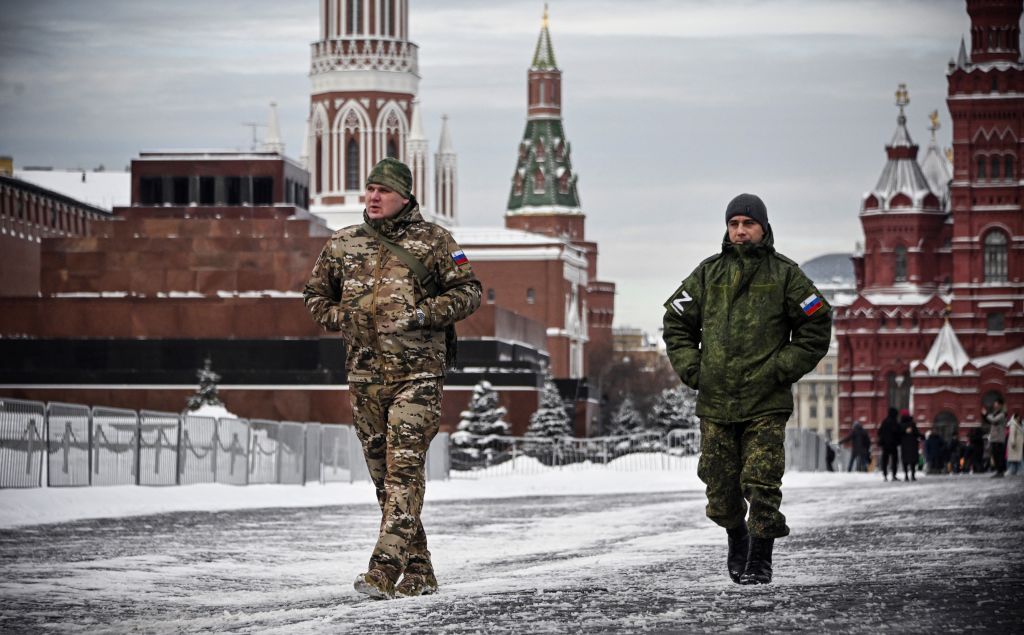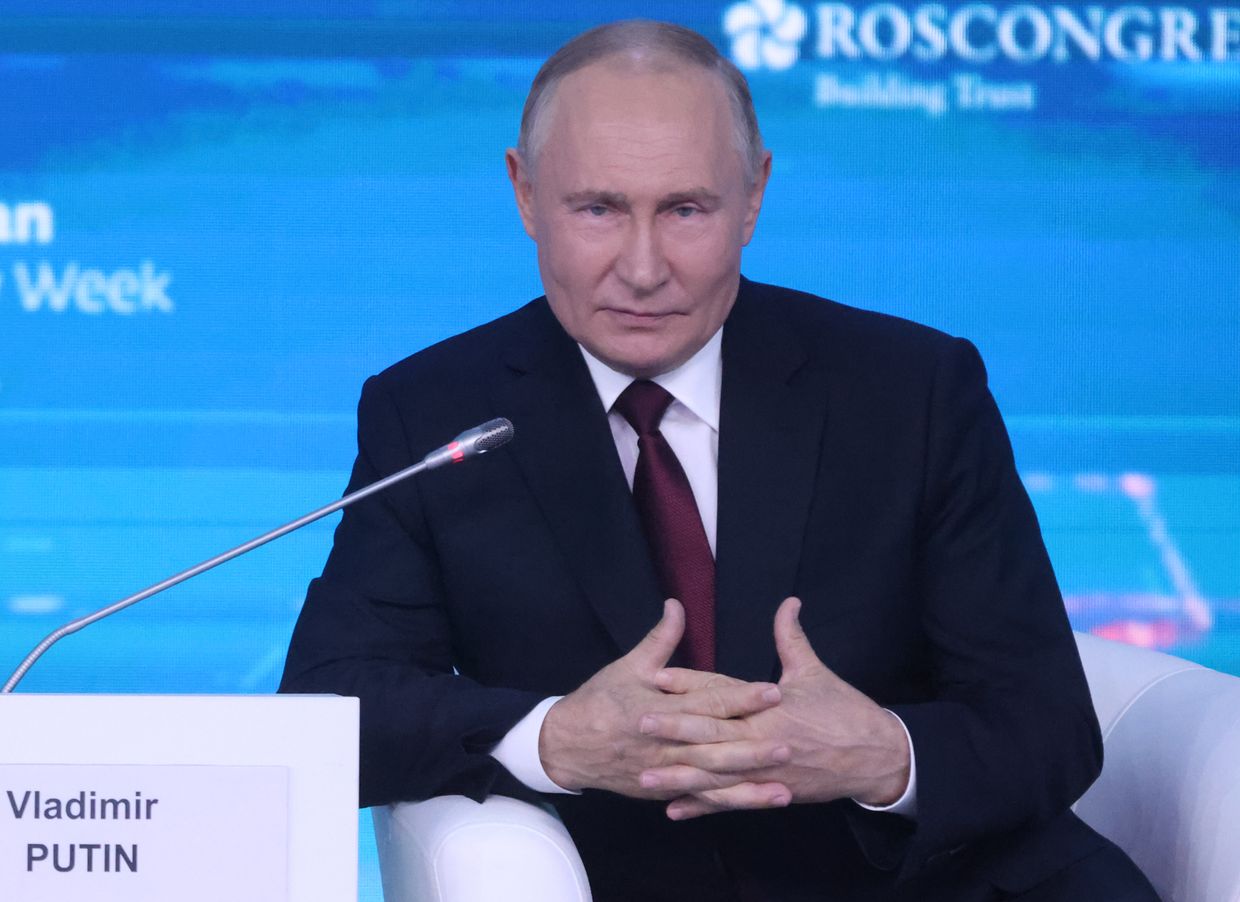Opinion: Ukraine's road to victory may lie in a 'Korean solution'
A Korean-style armistice could provide Ukraine with a path to long-term security and sovereignty without conceding defeat to Russia.

Ukrainian military personnel operate a tank in Sumy Oblast, Ukraine, on Aug. 12, 2024, amid Russia's full-scale war against Ukraine. (Roman Pilipey/AFP via Getty Images)
Victory in war is sometimes easy to define. World War II ended with Allied troops in control of Berlin and Tokyo, and with the German and Japanese leadership removed. The Vietnam War, on the other hand, ended in a clear defeat for the United States: North Vietnam conquered South Vietnam despite the futile expenditure of 58,000 American lives. The Korean War is sometimes called a stalemate because it never formally ended.
But such definitions can be deceiving. In Iraq, the U.S. removed Saddam Hussein but neither found weapons of mass destruction (the justification for their deployment) nor turned that country into a functioning democracy. Worse, some cynics would argue that the true victor was Iran, which became the most influential political force in Iraq.
On the other hand, though the demilitarized zone remains in place in Korea, the southern half of the peninsula has evolved into a vibrant, prosperous democracy with an annual per capita income of $35,000, whereas North Korea is a dangerous dictatorship with an estimated annual per capita income of $1,200 and recurrent food crises. Who won the stalemated war?
This brings us to Ukraine, where the definition of victory depends on the participants’ war aims and time horizons. In 2014, Russia invaded Ukraine on the pretext of protecting Russian speakers in Crimea and parts of the eastern Donbas region. Eight years later, Russia tried to complete the process by destroying Ukraine as an independent state.
As Russian President Vladimir Putin wrote in 2021, he did not regard Ukraine as an independent nation but as part of the larger Russian world. He massed troops on the border with the intent of capturing Kyiv in a few days and replacing the Ukrainian government, much as the Soviet Union had done in Budapest in 1956 and Prague in 1968.
He failed. Ukrainian President Volodymyr Zelensky rejected advice to flee the country and create a government in exile, and instead rallied his troops, saved the capital, and derailed Putin’s plan. Zelensky subsequently used the soft power of attraction to win foreign support and increase Ukraine’s hard power of military might. The result of Putin’s invasion was to strengthen Ukraine’s national identity and NATO, which has added two new members, Finland and Sweden, that previously had a long-standing policy of neutrality. Judging by Putin’s original war objectives, Ukraine has already won.
The problem, of course, is that Russian troops still control approximately one-fifth of Ukraine’s territory, and Putin has revised his war goals to demand that Ukraine recognize his annexation of four eastern provinces (including some that Russian troops do not fully control). The war seems to be stalemated, but Putin has turned it into a war of attrition. While Russian casualties are enormous, he may be betting that time is on his side, given Russia’s larger population and economy. Eventually, Ukraine’s will to fight may erode, as will Western support.

According to one recent poll, 26% of Ukrainians are open to a diplomatic solution, but they are not willing to engage in sham negotiations with an unrepentant Putin. Some 86% of Ukrainians believe that Russia is likely to attack again even if a peace treaty is signed. Though both Russia and Ukraine have expressed a willingness to negotiate, they remain far apart.
This past summer, Hungary’s Kremlin-friendly prime minister, Viktor Orban, went to Moscow to try to mediate, but failed to change Putin’s position. Meanwhile, Donald Trump continues to claim that he could settle the war in a day; but it is hard to see how that could be accomplished by anything short of a Ukrainian surrender.
Recently, Czech President Petr Pavel, a former NATO general who has been a strong backer of Ukraine, stated that “to talk about a defeat of Ukraine or a defeat of Russia, it will simply not happen. So the end will be somewhere in between.” Pavel warned that part of Ukrainian territory will remain under Russian occupation temporarily, and that “temporarily” could mean years.
If Ukraine defines victory as the return of all land that Russia has occupied since 2014, victory is not in sight. But if it aims to maintain its independence as a democracy linked to Europe, while reserving its right to the ultimate return of its territory, victory remains possible.
"If Ukraine defines victory as the return of all land that Russia has occupied since 2014, victory is not in sight."
But this possible victory also means that Putin must not be able to declare his own victory. Ukraine must be given the support it needs to strengthen its bargaining position. Even if Ukraine cannot achieve its maximalist goals in the short run, the legitimacy of its position would be preserved in the long term as long as Russian gains are not recognized.
This is sometimes referred to as a Korean solution. An armistice and demilitarized zone along the line of control would be monitored by international peacekeepers, so that Russia would draw in many other countries were it to resume its attack. While it may not be possible to get 32 NATO members to agree to Ukraine’s formal membership in the alliance at this time, a group of NATO members calling themselves “friends of Ukraine” could monitor the zone and vow to respond to any new act of Russian aggression.
Finally, Ukraine would also need assistance to rebuild its economy and access to EU markets. While a Korean solution would not satisfy Ukraine’s maximalist goals in the short term, it would certainly deserve to be called a Ukrainian victory.
Editor’s Note: Copyright, Project Syndicate. This article was published by Project Syndicate on Oct. 8, 2024, and has been republished by the Kyiv Independent with permission.The opinions expressed in the op-ed section are those of the authors and do not purport to reflect the views of the Kyiv Independent.












